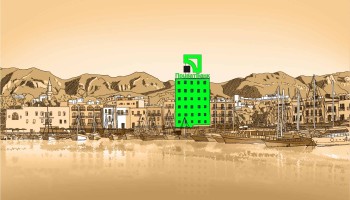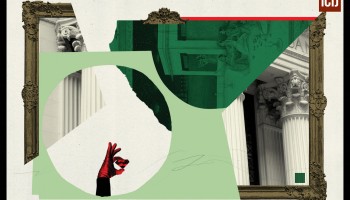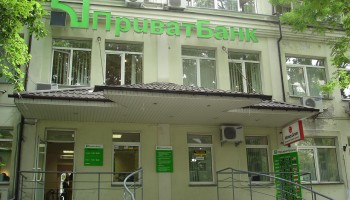A shadow banking structure, a bank within a bank, was instituted to extract the money on behalf of former shareholders and their affiliates in coordinated acts of fraud.
Hundreds of employees embedded within the bank may have been privy to the manipulation the loan book, a process that saw the vast majority of corporate loans awarded to the bank’s former shareholders and associates.
“The mechanisms used to disguise the origin and destination of loan funds demonstrated the characteristics of a large-scale money-laundering scheme,” read a statement from Ukraine’s central bank on Tuesday.
The volume and timing of the transactions, between parties that had no public connection, in addition to the extensive use of offshore companies, indicated a concerted attempt to disguise the true nature of the activity, the statement read.
According to the BBC, Privatbank was nationalised in December 2017 in an act said to have been aimed at protecting its 20 million customers and "preserving financial stability in the country", according to the country's central bank who blamed its capital losses on an "imprudent lending policy".
The results of the audit have been viewed within the prism of an ongoing legal battle between Ukraine’s government, the now state-owned PrivatBank and its former oligarch owners Igor Kolomoisky and Gennady Bogolyubov, the Financial Times reported.
London’s High Court granted an order to freeze more than $2.5 billion of the oligarch’s assets in December 2017, ruling in favour of PrivatBank, which is now seeking to recover its losses from the black hole left in its finances.
However, the former owners continue to deny claims that extensive lending and other alleged financial crimes precipitated a solvency crisis at the bank.
At the time, the central bank approximated that 97 percent of its corporate loans had gone to companies linked to Kolomoisky and Boholyubov, Radio Free Europe reported.
Kolomoisky dismissed the results of the probe as "nonsense," and told Interfax that the allegations are "Delirium, which there is no point in commenting on."
He also owns large segments of the media and energy industries and has come into conflict with President Poroshenko – himself a former oligarch – on previous occasions.






